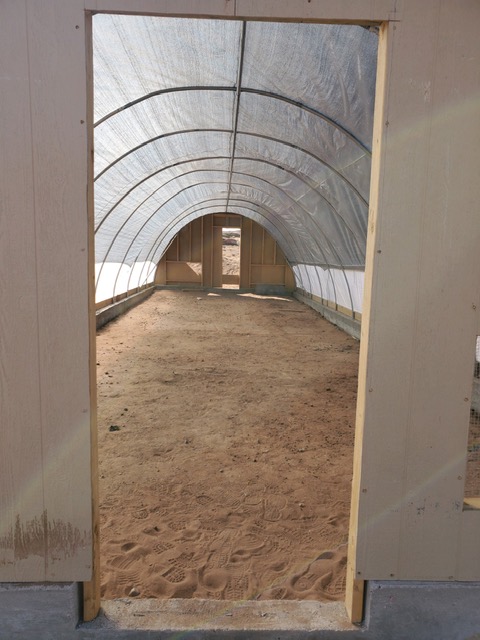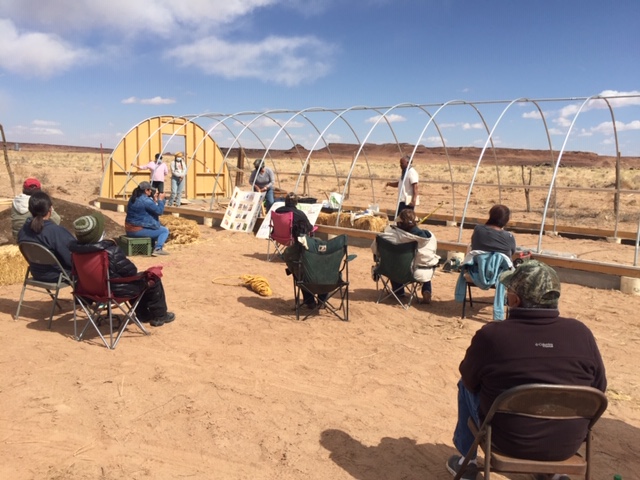[vc_row][vc_column][vc_column_text]Navajo women now have access to new technology to grow crops, with more support and encouragement to become small business entrepreneurs. Thanks to a partnership between ASEA Advancing Life Foundation and Navajo Nation CHOICE for the Navajo Women Ascend Program, the recent funding of four hoop houses has allowed women in the Navajo Nation to grow much-needed gardens for their families.
Sparse food choices
The Navajo Nation occupies portions of northeastern Arizona, northwestern New Mexico, and southeastern Utah. Even though the area covers 29,000 square miles with a population of 200,000 people, there are only 13 grocery stores for the entire region, which means the Diné Navajo people live in a food desert. This forces people to travel great distances to acquire nutritious food and more often than not, they are forced to omit many essentials from their diet and are more likely to suffer health issues from food insecurity.
In 1966, the US Federal Government placed a development ban on 1.5 million acres of Navajo lands due to a land dispute between the Navajo and the Hopi. Known as the Bennet Freeze, it prohibited any federal assistance with fixing roofs, building houses, constructing gas and water lines, and repairing roads. Although the development freeze was lifted in 2009, only 24% of the houses in the area are habitable, almost 60% do not have electricity or refrigeration for food, and the majority do not have access to potable running water.
Incredible women, new possibilities
Hoop houses provide a way for the Diné people to grow more crops and ensure a better harvest. Hoop houses extend the harvest a month later into the fall and a month earlier in the spring. They also protect plants from wind, frost, snow, or ice.

The hoop houses funded by the ASEA Advancing Life Foundation have benefited four separate women growers. These women have been growing crops and herbs for many years, but had never used a hoop house before. Regional managers with CHOICE assisted each of the women in building their hoop house and made sure to answer their questions and provide training for success. The Diné people often have high hurdles to jump through to receive a business license from the US government, a process that can take years. The women are part of Navajo Nation CHOICE training modules which help them become entrepreneurs more easily.
[su_image_carousel source=”media: 1594,1595,1596″ slides_style=”minimal”]
The women are now experimenting with container growing, growing boxes, and using natural soil, all things that would be much more difficult without the hoop house. The new hoop house protects the crops from insects, furry critters, wind, and more.
Innovative installments for greater success
Two of the women do not have water access near their garden and have to haul water for planting. That’s why CHOICE seeks to fund blowers, ventilation fans, and solar power for each hoop house. Using solar will also help minimize monthly electric bills for the women.
[su_image_carousel source=”media: 1597,1600,1599,1598″ slides_style=”minimal”]
If you’d like to contribute to the cause of the Diné women and their families by having more access to life-saving resources and innovation, consider donating today. Plus, ASEA matches every donation made so your funds will have twice the impact. Your generosity will help women feed their families, live healthier lives, and build a better future through their entrepreneurial ventures. [/vc_column_text][/vc_column][/vc_row]

